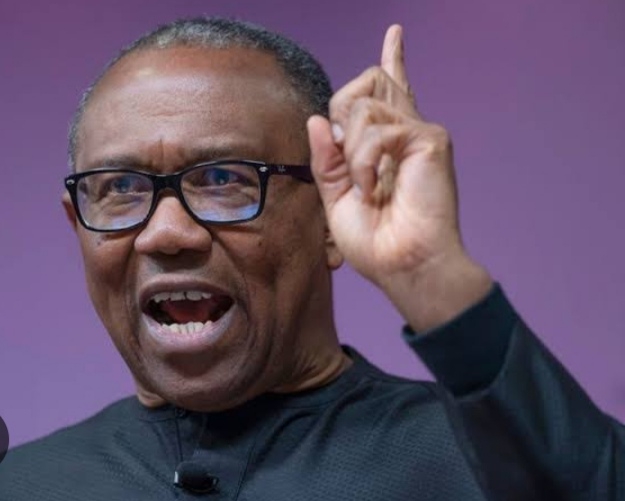On Nigeria’s Democracy Day, the Labour Party’s presidential candidate in the 2023 general election, Peter Obi, delivered a somber assessment of the nation’s condition, describing it as “deeply depressing” and far removed from true democratic ideals.
In a press conference held Thursday, Obi reflected on Nigeria's democratic journey, paying tribute to the late Chief MKO Abiola, widely regarded as the symbol of Nigeria’s pro-democracy struggle. Despite the democratic milestone, Obi questioned the substance of the current system, saying: “Nigeria cannot be said to be in a democracy under the current administration.”
Obi criticized the Tinubu-led federal government, stating that the past two years have not only failed to inspire hope but also serve as a grim preview of what Nigerians may face in the next election cycle.
Bleak Economic Realities
Pointing to stark economic indicators, Obi highlighted a sharp increase in poverty, stating that the percentage of Nigerians living below the poverty line has risen from 38.9% in 2023 to 54%. He also lamented the dilapidated state of primary health care, revealing that less than 10% of centres are functional, and that maternal mortality remains dangerously high in many states.
“I’ve personally witnessed distressing scenes in maternity wards where childbirth remains a gamble between life and death,” Obi said.
Hunger, Insecurity, and Mental Health Crisis
Obi painted a grim picture of rising food insecurity and hunger, which, he said, has pushed many Nigerians into “professional begging.” He further cited a World Health Organization report, which claims that over 20 million Nigerians now suffer from mental health challenges, a figure he connects to worsening living conditions.
In his speech, he emphasized that Nigeria’s current predicament stems not from a lack of resources, but from mismanagement and entrenched corruption.
A Government of Broken Promises?
Obi accused the federal government and the National Assembly of betraying the public trust. He referenced allegations of budget padding in the proposed 2025 national budget and criticized the increasing electricity tariffs, which he said come with no corresponding improvement in power supply.
“Nigerians now pay more for more darkness,” he quipped, recalling President Tinubu’s campaign promise to deliver reliable electricity within four years or forfeit re-election support.
The Bigger Picture
Obi’s Democracy Day remarks are more than a critique—they are a call to action. He urged citizens to hold leaders accountable, especially as the country edges closer to the next election. His tone was urgent but clear: Nigeria’s democracy, in its current form, is failing its people.
Whether viewed as a political maneuver or a genuine expression of concern, Obi’s message struck a chord on a day meant to celebrate the nation’s democratic progress—forcing reflection on whether the current political climate honors or betrays the legacy of those who fought for democracy.












